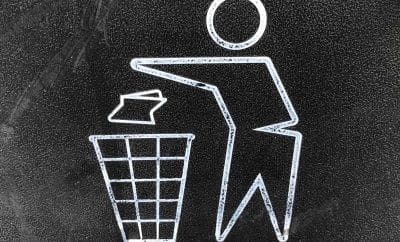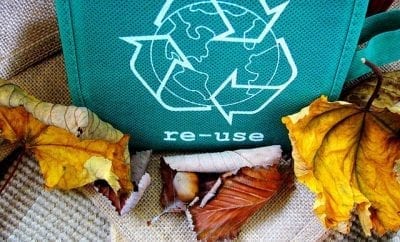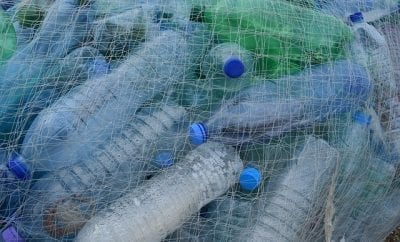Lifestyle
Local Business Watch: Some good doing, local clean up and a recall
Business in San Diego took some interesting twists and turns this past week from a recall on a kid’s bed to cleaning up California roads.
Special Summer Camp
The 2010 Vancouver Games, Olympic cross-country skier Kris Freeman shed his skis and poles this week to kick off his 6th annual diabetes summer camp tour with Eli Lilly and Company (Lilly Diabetes). Freeman was diagnosed with type 1 diabetes 10 years ago at age 19 and will share his amazing comeback story from coast to coast and encourage children with diabetes to continue pursuing their dreams.
After fighting back from a rare muscle disorder to compete in the 2010 Olympics in February, Freeman suffered several setbacks during his races, including a plunge in his blood sugar level that caused him to collapse while racing in the lead pack of the 30km pursuit.
“That was a disappointment,” Freeman said, “but I think it’s important to show children that even though diabetes can sometimes throw you off your game, the key is to keep on going.”
 Freeman has worked closely with Lilly Diabetes for 8 years, visiting more than 3,000 youngsters at diabetes summer camps, where kids take part in typical camping experiences in a setting that provides the medical and social support they need. This year’s tour takes Freeman to 14 camps throughout the US, where he’ll speak with campers, parents, and staff and participate in daily activities. A key question from kids at every stop is always how he has been able to compete at the highest level while managing his diabetes day-to-day. Freeman’s reply is always the same:
Freeman has worked closely with Lilly Diabetes for 8 years, visiting more than 3,000 youngsters at diabetes summer camps, where kids take part in typical camping experiences in a setting that provides the medical and social support they need. This year’s tour takes Freeman to 14 camps throughout the US, where he’ll speak with campers, parents, and staff and participate in daily activities. A key question from kids at every stop is always how he has been able to compete at the highest level while managing his diabetes day-to-day. Freeman’s reply is always the same:
“It’s so important to know as much as you can about the disease, but in addition, consistent blood sugar management and having the support of family, friends, and a healthcare team are critical to success.”
Freeman’s 2010 summer diabetes camp dates begin June 9 and run through August 18. On July 13, he will be at Camp Wanna Cure in San Diego
Clean Up
Citing the need for all Californians to work together to increase recycling and reduce litter, the California Department of Transportation (Caltrans), the plastics industries of the American Chemistry Council and Keep California Beautiful (KCB) is expanding its partnership to place new recycling bins and educational signage at the Gaviota, Camp Roberts and Shandon rest areas.
 Until now, there has not been a widespread campaign that makes it easy for travelers to recycle and, at the same time, discourages them from littering. More than 100 million motorists visit California’s 87 roadside rest areas every year. With this expanded program, travelers have more opportunities to recycle while they are on the road.
Until now, there has not been a widespread campaign that makes it easy for travelers to recycle and, at the same time, discourages them from littering. More than 100 million motorists visit California’s 87 roadside rest areas every year. With this expanded program, travelers have more opportunities to recycle while they are on the road.
“Litter turns communities and natural landscapes into eyesores. For much of the debris left behind – such as plastic bottles and containers – there is no reason why it has to be trash at all. If we all work together, we can help protect California’s roadsides by recycling not only at home, but also while on the road,” said Keep California Beautiful Executive Director Christine Flowers.
“Plastics do not belong in the environment. America’s plastics makers are committed to increasing recycling opportunities so more plastics can go on to live second lives as useful products,” said Keith Christman, managing director of plastics markets for the American Chemistry Council. “By placing recycling bins where more people can find and use them, our partners are helping us to preserve California’s natural beauty for future generations.”
The “Plastics Too Valuable to Waste Recycle,” campaign is a partnership involving ACC, the California Department of Parks and Recreation, the nonprofit Keep California Beautiful and Caltrans. Through their efforts, these organizations have placed nearly 700 seasonal and permanent recycling bins at more than 30 locations in the San Diego, Los Angeles, San Luis Obispo, Monterey, San Francisco, and Santa Cruz areas.
Bad Beds
About 2000 Pirates of the Caribbean Twin Trundle Beds are being recalled.
These beds are distributed by Bayside Furnishings (a division of Whalen), of San Diego, and according to reports, the hazard is that the headboard has a storage bin that poses an entrapment hazard to young children.
The U.S. Consumer Product Safety Commission PSC received one report of a 4 year-old boy whose head became entrapped in the opening of the storage bin. He sustained bruises on the back of his left and right ears.
The preassembled headboard has a brown wood base with decorative carvings, three open storage compartments, a storage bin and a mast. The storage bin located in the headboard, measures approximately 39 inches long, 6 1/2 inches wide and 24 inches deep. The “Pirates of the Caribbean” trademark is embossed on a metal plate inside the headboard. The name and address of the manufacturer, model number, manufacture date and “Made in China” is printed on a label affixed to the inside of the mattress frame side rails.
The beds were sold exclusively at Costco stores nationwide from January 2006 through January 2010 for between $700 and $1,400.
Consumers should immediately stop using the headboard storage bin and contact the firm to receive a free repair kit that will permanently close the headboard storage bin. The repair kits will be mailed to consumers in approximately 4 to 6 weeks.
Consumer Contact: For additional information, call Bayside toll-free at (877) 494-2536 between 8:30 a.m. and 4:30 p.m. PT or visit the firm’s website atwww.baysidefurnishings.com.
Photo Via Flickr ‘mikebiards’ and ‘timtak’





0 comments